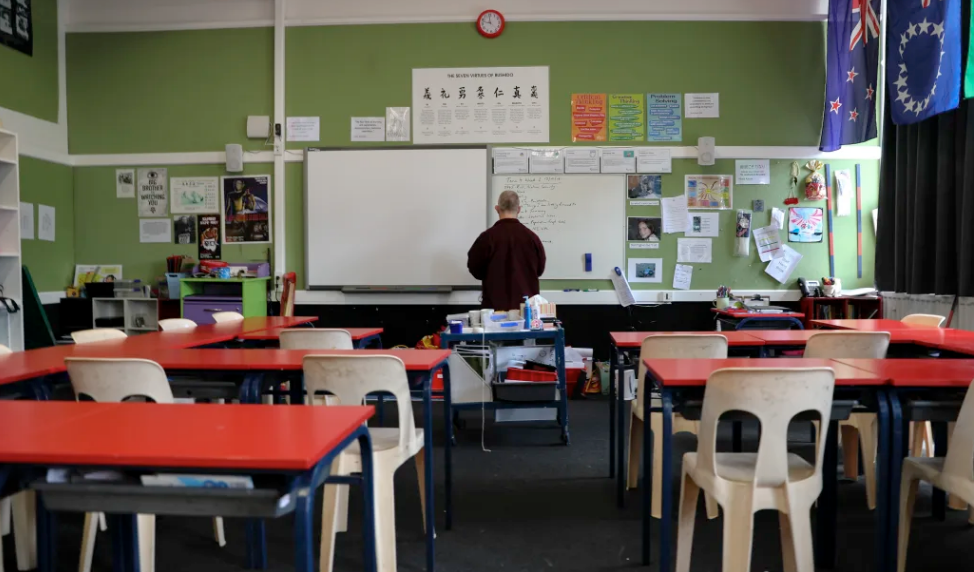
Some regions are declaring a teacher supply crisis, as schools once again struggle to find enough teachers for the coming year.
Principals told RNZ they needed more staff than ever thanks to the arrival of nearly 40,000 children of foreign workers over the past two financial years and, for primary schools, increases in classroom release time for teachers next year.
They said they were getting more applications from overseas-trained teachers, but what they really wanted were locally-trained graduates.
Primary schools had been told to expect an over-supply of teachers as enrolments dropped.
But Southland Principals Association president Simon Bell said the 80 schools in his region were not seeing it.
"They're still hunting around. Principals are putting out emails around their networks to see do they know of any good teachers or any good third-year college students that they could shoulder-tap," he said.
"It used to be very unusual for schools [in] week seven, week eight of term four not to have their staffing sorted but now it's becoming just an everyday occurrence," he said.
He said the region's schools were not getting a lot of applications from New Zealand-trained teachers and their experience of overseas-trained teachers was that they did not stay.
Bell said that was a problem because schools had to find more teachers to cover increases in classroom release time next year, and to release their staff for government-funded teacher training in literacy and numeracy.
"It sounds like we're really negative but we're not against all these solutions, we're just trying to point out that it is actually a crisis," he said.
"We're starting to hear from other associations around the country that have the same issues, so we don't believe it is just a Southland thing."
'There is concern out there'
Principals Federation president Leanne Otene confirmed that schools in other regions were also struggling with recruitment for 2025.
"What I'm being told by principals is that the number of applicants is substantially less than in any previous year," she said.
"It's been dwindling for some time because we're not training as many teachers anymore and we don't have as many graduates as we have had in the past."
Otene said some schools started advertising their expected 2025 positions in term two, but it appeared more teachers were resigning late in the year.
"There is concern out there. We won't really know whether or not we've got teachers in front of classes until probably around about January. There'll be scrambling in January no doubt to fill those last positions."
Otene said teaching was no longer as attractive as it used to be to school-leavers, in part because of a poor public perception of teachers and teaching.
Secondary Principals Association president Vaughan Couillault said secondary schools were also affected.
"I'm on a campus where I've got to add a dozen teachers to my roster, so not replacing, actually adding. We have had significant applications but the vast majority of those are from offshore, haven't had any experience teaching in a New Zealand secondary school and finding quality is continuing to be a real challenge."
Couillault said immigration had big effect on enrolments, and therefore demand for teachers, in some areas.
"I will have gone up 600 students in two years," he said.
He said schools were having to think creatively to fill their vacancies.
"I'm having difficulty recruiting a food tech teacher that has New Zealand experience and understanding and so we're looking at one of our high-quality teacher aides that's worked in that area for the last few years, knows our kids well, is part of our family and looking to get a Limited Authority to Teach. So we're all trying to create solutions like that with people that we know and trust," he said.
Couillault said there had been a small increase in the number of New Zealand-trained secondary teachers, but despite that it was as hard as ever to find teachers and schools in remote areas would be struggling the most.
The government's May Budget included $53 million extra for teacher education and recruitment.













